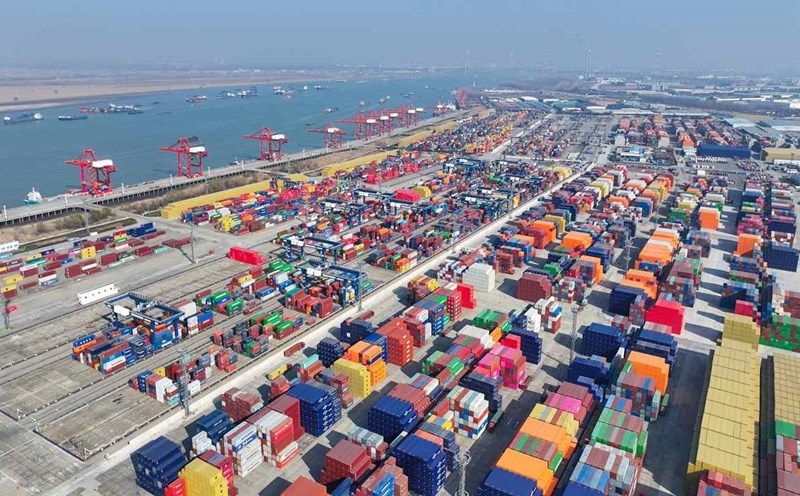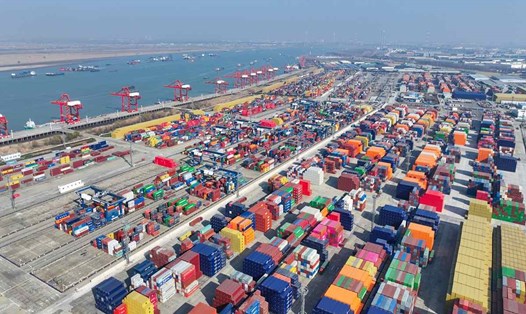China announced retaliatory measures as soon as the 10% tariff imposed by the US on Chinese goods took effect on February 4, with a series of measures including imposing 10-15% tariffs on some US products, CNBC reported.
The Chinese government said it would impose an additional 15% tariff on US coal and liquefied natural gas, as well as a 10% tariff on US crude oil, farm machinery, large-engine cars and pickup trucks. The measures will take effect on February 10.
China's announcement came minutes after the US tariffs on Chinese goods took effect at 12:01 a.m. ET on February 4.
NBC News commented that failing to prevent China from imposing retaliatory tariffs on the US increases the risk of escalating trade conflicts between the world's two largest economies.
In addition to imposing retaliatory tariffs, Beijing also announced it would investigate Google for alleged violations of antitrust laws as well as export controls on items related to tungsten and other rare earth elements.
US gene sequencing company Illumina and PVH Corp - owner of Calvin Klein and Tommy Hilfiger - were also added to the unreliable entity list, restricting their ability to operate in China.
On February 1, US President Donald Trump announced a 10% tax on Chinese goods at the same time as announcing a 25% tax on imported goods from Canada and Mexico.
However, tariffs on Canadian and Mexican goods were suspended for 30 days after talks on February 3 with the leaders of the two countries, but it seems that no agreement has been reached with China.
On February 2, Beijing said it had filed a complaint with the World Trade Organization about the US tariffs on Chinese goods “to protect its legitimate rights and interests.” A spokesperson for China’s Ministry of Commerce said the additional tariffs imposed by the US “seriously violate WTO rules and are a serious act, a typical display of unilateralism and trade protectionism.”
White House press secretary Karoline Leavitt said on February 3 that President Trump is expected to speak with Chinese President Xi Jinping "in the coming days."
Mainland Chinese markets remain closed for the Lunar New Year holiday. Other markets in Asia-Pacific rose early on Monday after the U.S. delayed tariffs on Canadian and Mexican goods.











